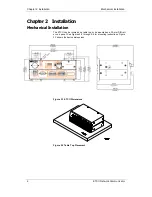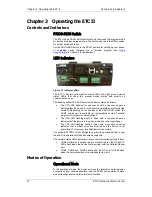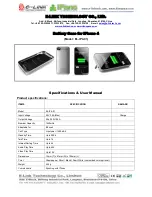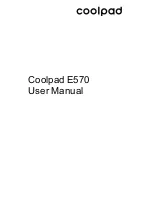
Chapter 1 General Information
ETC II Network Communicator
5
Chapter 1
General Information
The ETC II Network Communicator is a multi-port Internet-to-serial that
connects multiple serial RS-485/422 or wireless ZigBee devices to the
Internet via a local Ethernet network or via public telephone lines. It can also
be used as an Internet-to-Internet router for connecting master stations to
remote slave devices that are directly connected to the Internet. The ETC II
provides transparent master-slave connections using TCP/IP versions of the
popular industrial fieldbus protocols such as Modbus RTU, DNP3, and
SATEC ASCII.
The embedded Data server allows the ETC II to automatically acquire data
from slave devices and to store it in the memory exchanges or in the data log
files in non-volatile memory, so a user application can read blocks of
acquired data directly from the ETC II exchanges without waiting for a
response from slow serial and wireless devices. The application can also
write data to slave devices via the ETC II exchanges instead of waiting until a
remote device is accessible. The Data server may be programmed to
monitor the slave device’s status registers for specific events and to record
them to a log file, and send alerts to a remote server.
Features:
Ethernet 10/100Base-T port communicating to the IP network
Service USB Device port to communicate with PAS
Two RS-422/RS-485 master ports for connecting to serial networks
Service RS-232 port that can be used as a slave port for serial master
applications
Optional CELLULAR modem port communicating to the IP network
Connections using popular field-bus protocols such as Modbus TCP
Terminal connection
Telnet service
Embedded Data server: up to 250 real-time data exchanges, up to 250
data write exchanges, and up to 250 16-bit status event exchanges
Up to 250 data log files
Event log for recording status change events and device diagnostics
Table top, DIN Rail or wall-mounting options
4 Mbyte non-volatile memory with battery backup for storing data and
event files
Real Time Clock
120/240V AC/DC operation






































